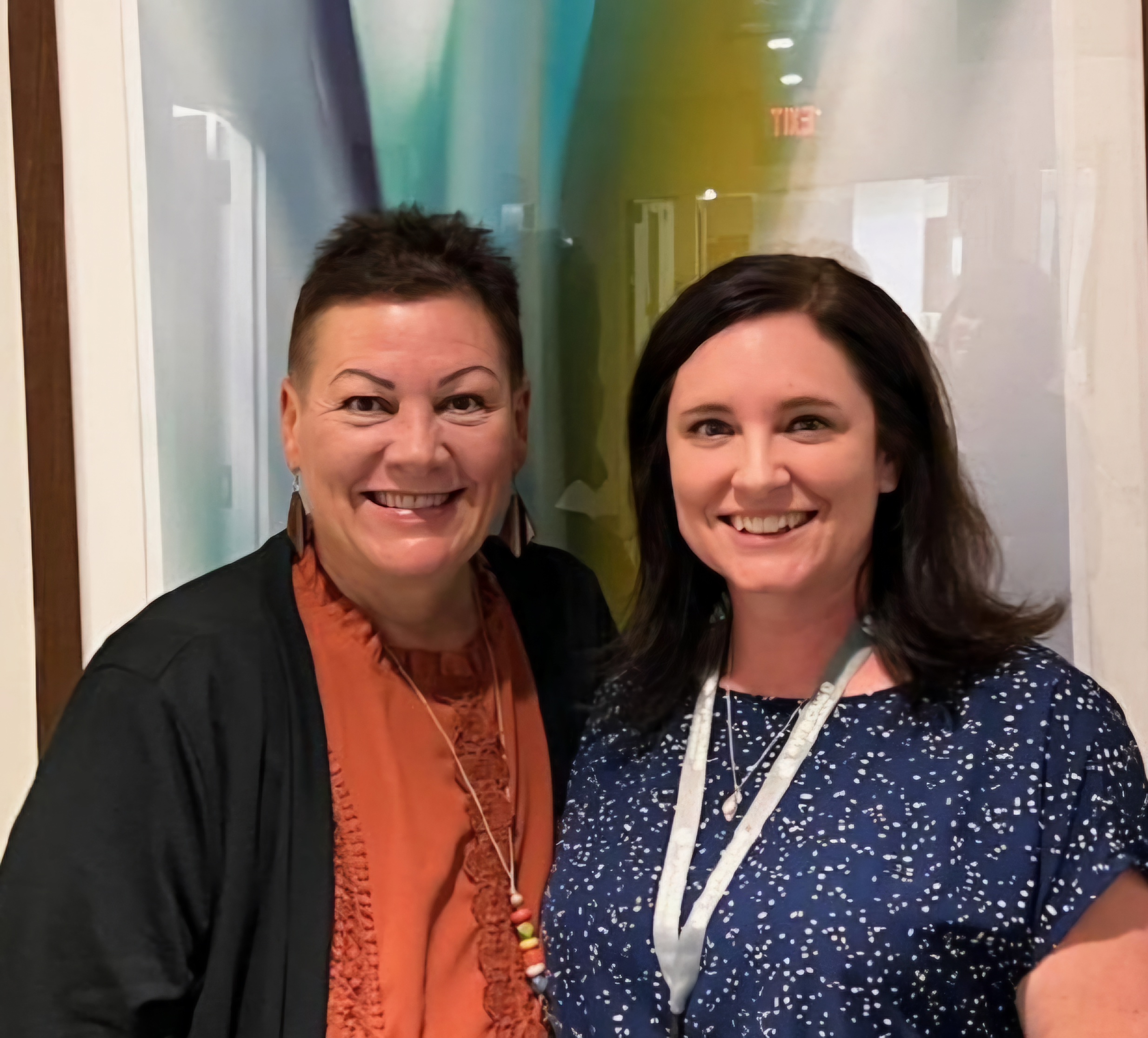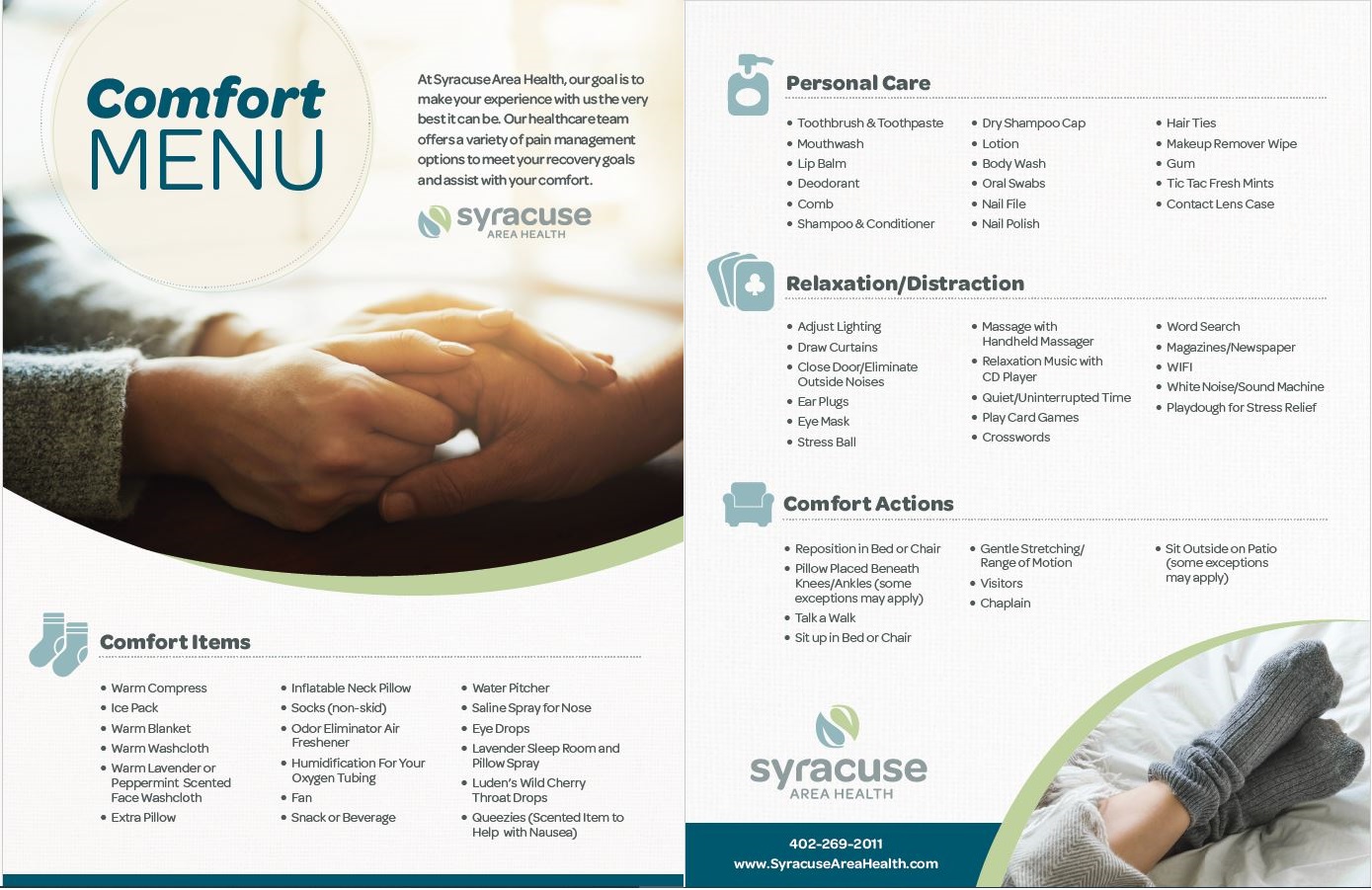 Sandi Rippe (left) and Emily Iske (right)
Sandi Rippe (left) and Emily Iske (right)
For three years in a row, beginning in 2022, Syracuse Area Health, a critical access hospital (CAH) in Syracuse, Nebraska, was among 20 CAHs from across the United States to be recognized for patient satisfaction by the Chartis Center for Rural Health. Earning that recognition could be thanks, in no small part, to the hospital’s Patient and Family Advisory Committee (PFAC). “Our PFAC has been instrumental in helping improve the patient experience,” said Sandi Rippe, director of community outreach and patient relations, who co-leads the PFAC with the care transitions coordinator Emily Iske, LCSW, LMHP.
Getting started
With leadership support, Rippe and Iske put together a team that included seven community members, a senior leader and a department director. A first step for the team was to establish the guidelines and goals of the PFAC. When making follow-up phone calls to new patients, Rippe met a member of the TMF Quality Innovation Network-Quality Improvement Organization (QIN-QIO) PFAC. Rippe was then introduced to Nanci Newberry, a TMF QIN-QIO quality improvement specialist and the TMF QIN-QIO patient and family engagement coordinator.
“Nanci was extremely instrumental in helping us establish a solid foundation for our PFAC,” said Rippe. In addition to offering suggestions on how to organize PFAC meetings, Nanci provided links to resources about recruiting members, establishing an onboarding process and scheduling meetings.” Rippe and Iske also learned how to identify potential PFAC members. The new Syracuse Area Health PFAC held its first meeting during National Healthcare Quality Week in 2021. “Emily and I ‘high-fived’ after the meeting. We were set!” Rippe said.
Learning and sharing
After that initial meeting, the PFAC members agreed on a bi-monthly meeting schedule. During these meetings, the PFAC reviews Syracuse Area Health’s patient satisfaction scores and discusses ways to improve quality and safety. “We have seen our projects make life better for our patients, their families and staff,” Rippe said.
One of the first projects the PFAC completed was to redraft a letter from Syracuse Area Health that accompanied patient satisfaction surveys to increase the response rate. The PFAC also developed a pamphlet to help patients and families better understand billing in a health insurance brochure.
The TMF QIN-QIO shared Syracuse Area Health’s PFAC journey on a TMF QIN-QIO Community of Practice Call in February 2022. The TMF QIN-QIO team has been asked to speak on affinity calls and one-on-one with other hospitals in its service region that want to build their own PFAC.
Rippe is certain about one recommendation: Find a people person. One qualification that is not critical is the need for clinical experience. The right person to lead a PFAC, Rippe and Iske agree, is someone who’s “able to listen well and be resourceful when faced with challenges.”
Through leading their PFAC, Rippe has found great satisfaction in giving patients the opportunity to have their voices heard and shown that Syracuse Area Health cares what they have to say. When those that have voiced their concerns see action being taken, they feel that they have been listened to. “It is so important for us to hear what the patients’ needs are and act upon them,” stated Rippe. “Who better to tell us than the patients themselves?”
Rippe started making follow-up phone calls to new patients and expanded her scope to also follow up with patients discharged after an admission, as well as those seen in the emergency room. Rippe and Iske worked with their staff to update and improve the hospital’s discharge information packet with the help of the PFAC. The PFAC provided input on another project that included creating a comfort menu from which patients could choose items like earplugs, lavender scented oils, relaxation music or even some Tic Tac mints as a way to help manage any discomfort or anxiety they may be experiencing.
 Syracuse Area Health’s comfort menu gives patients a variety of options for managing discomfort or anxiety.
Syracuse Area Health’s comfort menu gives patients a variety of options for managing discomfort or anxiety.
With the support of senior leadership, Syracuse Area Health was able to hire two nurse care transition coordinators to assist with discharge follow-up. The care coordinators also assisted in identifying gaps in care—some a result of social determinants of health—along with educating patients on their medications, their medical conditions and how to manage both upon discharge to a post-acute facility or their home.
In October 2022, Rippe was chosen to represent Syracuse Area Health for the Caring Kind award, which is given each year by the Nebraska Hospital Association. The recipients of this prestigious award have gone above and beyond in demonstrating compassion for patients, cooperation with co-workers and dedication to excellence in their job responsibilities. Iske received the Caring Kind award in 2023.